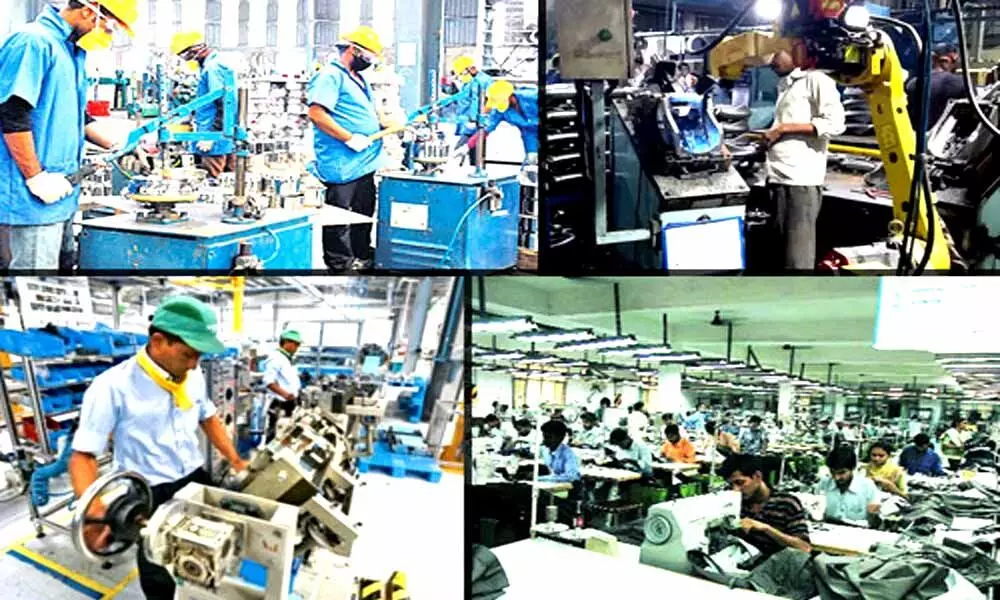SCF offers financial stability to MSMEs
Supplier can approach the lender (financial institution) with the invoices for immediate cash in hand against the receivables at a discount; On the other hand, buyers can get short-term credit by extending their payment terms with the lender; This Supply Chain Finance (SCF) becomes a resourceful financing option for micro and small firms with low creditworthiness
image for illustrative purpose

Short-term Liquidity
- MSMEs unable to provide adequate data on their creditworthiness
- Business data provided by MSMEs is inadequate
- MSMs don't have audited financial reports
- MSMEs lack collateral required to get financial support
- SCF provides immediate liquidity to MSMEs
- It also helps optimize working capital requirements
- Factoring Regulation Bill 2020, a revised amendment of The Factoring Regulation Act, 2011
- The new law aims to improve MSMEs' financial inclusion
- Revised law allows banks, NBFCs to provide factoring services
Mumbai: The major hindrance for MSMEs is to qualify for loans offered by traditional banks and non-banking financial companies (NBFCs). It's their inability to provide adequate data to prove their creditworthiness. The business data provided by MSMEs is inadequate, and most of them don't have audited financial reports to boost the confidence of the lenders. Another issue faced by MSMEs is the lack of collateral required to mitigate the risk for lenders. All this leads to a lower credit rating of the enterprises.
In such instances, Supply Chain Finance (SCF) is a resourceful financing option. It provides short-term credit that helps optimize working capital requirements and provides immediate liquidity.
Micro, Small, and Medium Enterprises (MSMEs) have been an integral part of the Indian economy. FY20-21 data from Statista estimates that India has over 63 million MSMEs, with the rural segment contributing a higher number of micro-enterprises. They form the most extensive employment base with job opportunities to over 110 million people, half of them employed in the manufacturing segment. MSMEs contribute over 30 per cent to India's GDP. This makes it crucial to have robust supply chain finance that leads to seamless commerce trades and helps MSMEs sustain their growth. However, small businesses starve for cash to achieve this goal.
Key part of SCF is also known as supplier financing or reverse factoring as it enables suppliers to cash in on the receivables before the actual payment date. The supplier can approach the lender (financial institution) with the invoices for immediate cash against the receivables at a discount. On the other hand, buyers can get short-term credit by extending their payment terms with the lender.
Talking to Bizz Buzz, Arun Poojari, cofounder, Cashinvoice, says: "The aim of SCF is to promote growing concern, i.e., help the company achieve financial stability to continue its operations in the foreseeable future. A strong business model can instill faith in the lenders despite the lower credit score of the borrower."
MSMEs have to resort to high-cost financing due to the lack of credit history and lower credit rating. To help MSMEs overcome this issue, The Indian Government announced The Factoring Regulation Bill 2020, a revised amendment of The Factoring Regulation Act, 2011. The new law aims to improve MSMEs' financial inclusion and credit availability by allowing banks and NBFCs to provide factoring services. This cost-effective credit availability is an excellent boost for startups and existing MSMEs to improve their profit margins. Digital platforms act as great intermediaries to bridge the gap between all parties –buyers, suppliers, and lenders, he added.
Majority of MSMEs are situated in tier-II and tier-III cities in India. They face most hurdles due to low credit rating, financial inclusion, and financial literacy levels. The penetration of SCF platforms is faster as they are mobile-based apps and can be accessed from anywhere. They offer end-to-end financing arrangements which improve time and cost-efficiency.
According to Poojari, "SCF platforms provide Artificial Intelligence (AI)-backed risk mitigation techniques and help bridge the gap between lenders and borrowers. Machine learning models offer more intelligent insights based on dynamic factors and are not limited to only credit scores. The models consider time sensitivity and seasonality as a factor during risk assessment with the help of alternate data like day-to-day operating activities, GST data and invoices."
For instance, the low credit score may be for a short time frame in situations like the Covid-19 pandemic. The knee-jerk halt in the economy may be the primary reason for the cash crunch rather than the business model.
Digital SCF platforms can empower MSMEs by increasing awareness and reach of this unique financing structure. This is a great opportunity for small businesses in Tier-II cities and beyond to keep pace with global commerce and ramp up their capacities. Lenders can improve their working capital management and mitigate risks since large corporates act as anchors for SCF transactions. Supply Chain Finance platforms can help all related parties to generate fruitful Return on Investments (ROI).

